https://www.lifegate.it/cacao-effetti-ambientali-sociali-costa-davorio
- |
Over 5 thousand years ago in South America, cocoa was considered the "food of the gods".Observing the crazy upward price rush of recent times on international markets, one could consider it a luxury good.Last April raw cocoa bean futures fared better than bitcoin reaching a cost of over 10 thousand dollars a ton, with an increase of 160 percent.
The cause is mainly linked to effects of the climate crisis which particularly affected theWest Africa causing a drop in world production by 11.7 percent in the 2023/24 campaign.
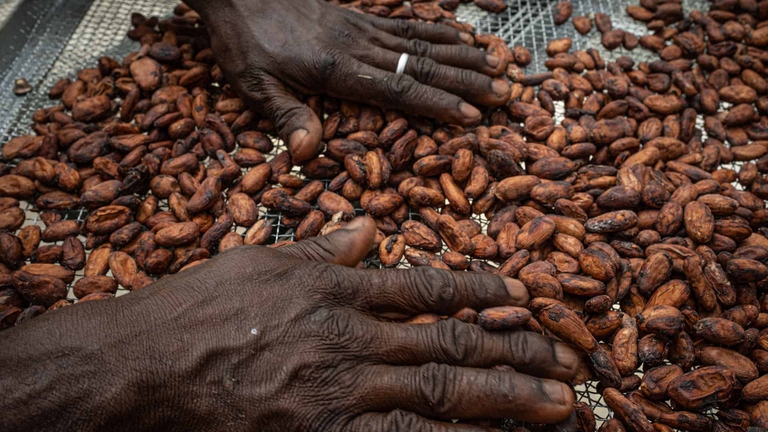
The plantations of Ivory Coast and Ghana, where over 70 percent of world production comes from, have been seriously damaged and the International Cocoa Organization (Icco), which brings together cocoa producing and consuming countries, predicts that in the next season there will be a deficit of more than 500 thousand tonnes .Irregular rainfall alternating with temperatures above average, due to El Niño climate phenomenon, they affected plantations that were already complex to cultivate and particularly delicate, because overexploited and give them very low immune defenses because of thesoil erosion.Extreme weather events have in fact been accompanied by harmful pathologies such as virus swollen shoot which in Ivory Coast affected around 30 percent of the plantations.
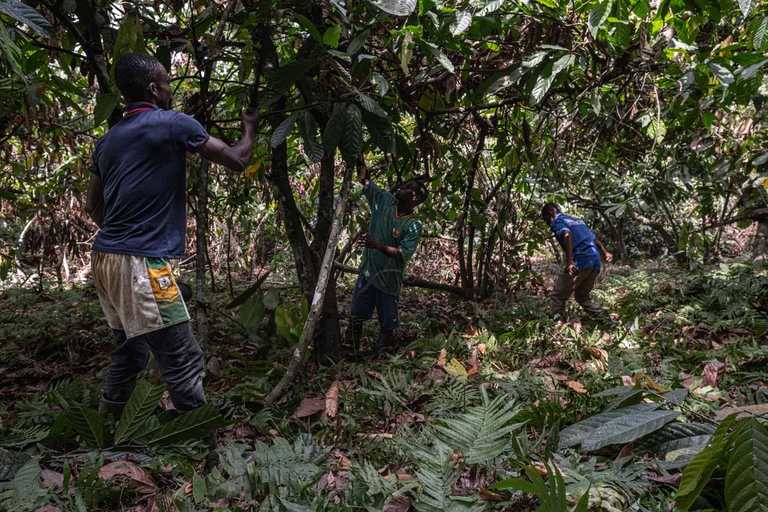
The numbers of the supply chain in Ivory Coast
In the country, the cocoa supply chain represents more than 15 percent of the GDP, employs over 600 thousand farmers and supports 24 percent of the population.One might therefore think that this surge in prices corresponds to greater benefits for Ivorian growers.But the paradox is that over the years they have become impoverished due to an unfair and increasingly unsustainable supply chain.
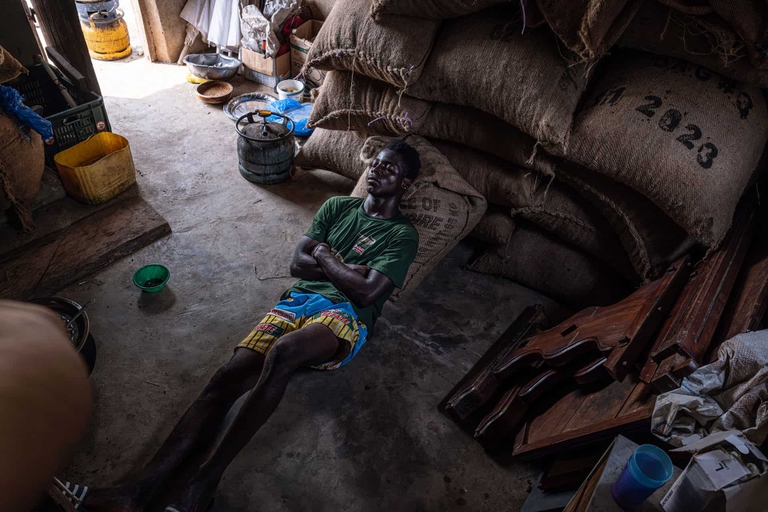
In Ivory Coast the purchase price to the manufacturer is set and insured by the government body Conseil café-cacao (CCC) which should protect farmers from fluctuations in international trade.After long pressure from agricultural cooperatives and unions, a new plan was announced last April 50 percent increase of the price for the intermediate campaign which will last until September.
One kg of cocoa beans went from 1,000 to 1,500 CFA francs (from 1.52 euros to 2.30 euros).It might seem like a significant step forward if it weren't for the fact that farmers are being hit by years of declining harvests, at the same time as the rising cost of living has exploded since the Covid 19 crisis.
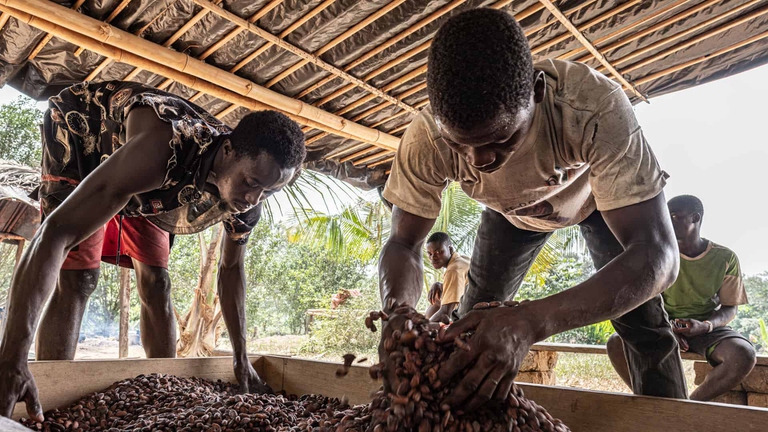
The majority of Ivorian farmers, mostly small landowners and labourers, despite producing the largest share of "brown gold", lives below the poverty line (set at $2.50 a day), as reported by Cocoa barometer of the NGO network, Voice network.
This precariousness thus becomes a brake on their ability to invest in profitable and environmentally sustainable agricultural activities.
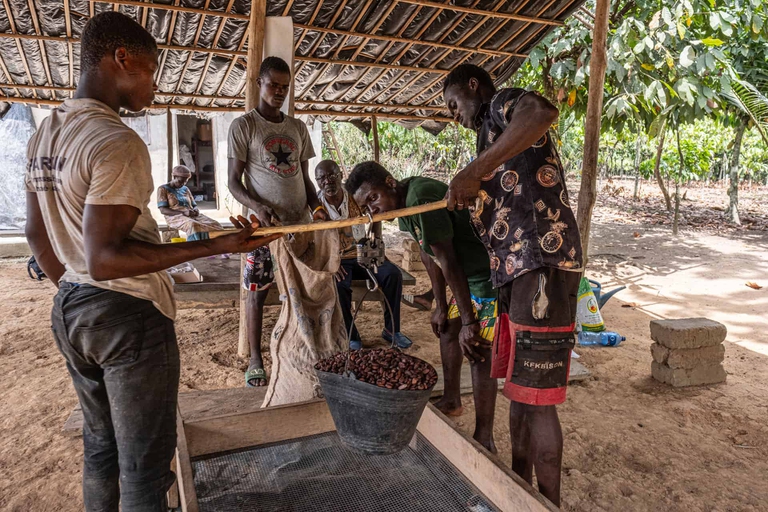
Many plantations are neglected and are not renovated;in fact, the cocoa plant reduces its yield over time.Now the trend, especially for those who own fewer hectares, is gradually abandon cocoa to dedicate themselves to other crops or more profitable activities.These phenomena would also be causing the current crisis, according to experts.
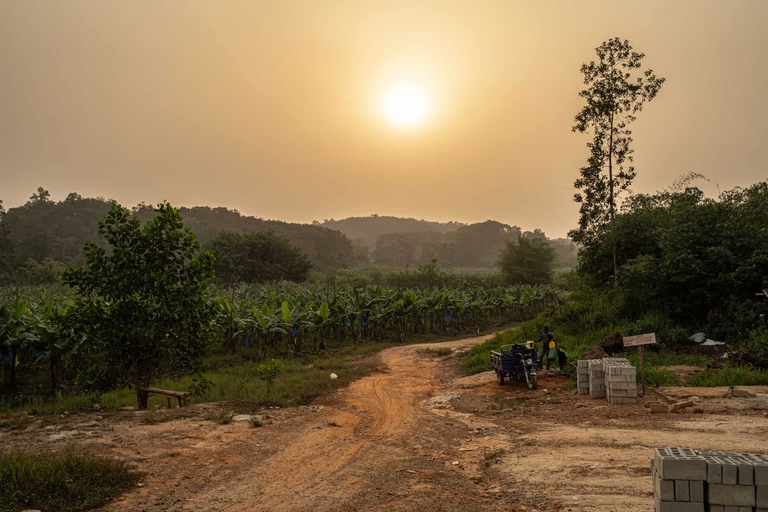
All the dark sides of the "cocoa system"
Brown gold is one monoculture intended for the international market which has been showing all its features for decades environmental and social side effects. Poverty and lack of real development in communities favor child labor which affects 45 percent of children in cocoa farming families according to the International cocoa initiative.Furthermore, the Ivorian territory has lost 80 percent of its forests, of which 28 percent in the last 20 years.Several studies have shown that deforestation has started to increase again and it was partly caused by cocoa cultivation of small farmers expanding into virgin territories.Finally, the pressure to have a harvest sufficient to survive has in turn caused a increase in the use of plant protection products such as pesticides and fertilizers, many of them trafficked illegally and banned in the EU, with consequent health and environmental impacts.
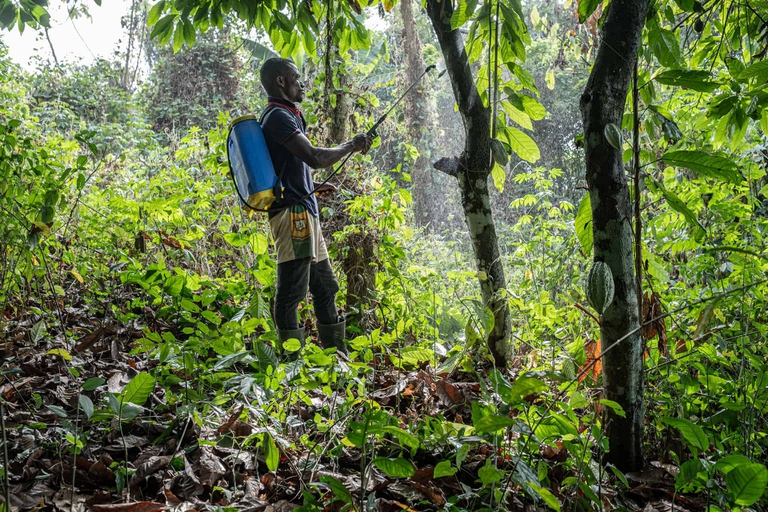
The problem of the "cocoa system" does not seem to be attributable only to the usual speculative operations of brokers on Wall Street but rather to the fact that the bulk of the profits have always gone to those who process the seeds to create chocolate bars and sell them, and not to those who grow and harvest them.A handful of cocoa multinationals form a oligopoly who has the market in their hands and does not want to share the profits.This market was estimated at $119.39 billion in 2023 and it is expected grows at an annual rate of 4.1 percent until 2030, while farmers only get between 7 and 11 percent the value of a chocolate bar sold in Europe.
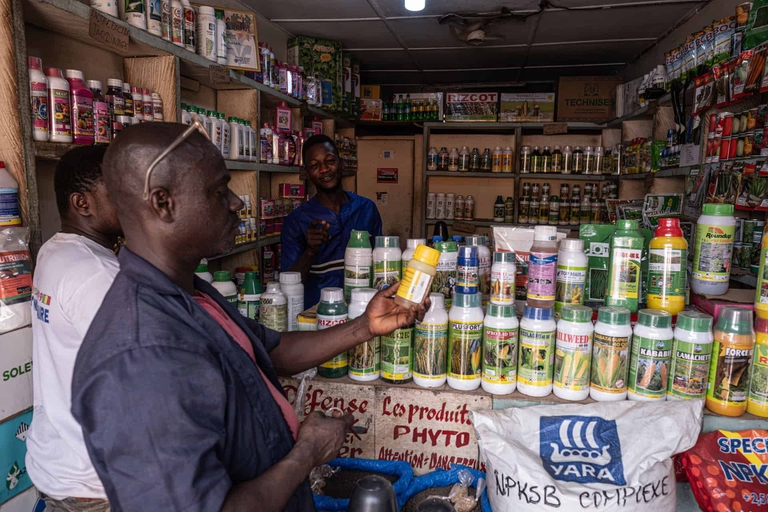
As reported by Oxfam, the increase in seed prices was immediately passed on to consumers.Lindt, Mondelēz and Nestlé reported nearly $4 billion in profits in 2023 and have all distributed to shareholders.The collective fortunes of the Ferrero and Mars families, who own the two largest private companies, have risen to $160.9 billion.Figures higher than the combined GDPs of Ghana and Ivory Coast.The latter tried several times to bang their fists on the table.There was optimism in 2020 when with a law they introduced the surcharge of $400 for each ton exported, called “Living Income Differential” (LID), intended to increase farmers' share of profits.However, not much has changed because multinationals have found ways around it although the sum would not have made much of a dent in their profits.
Adding to the complexity of the situation is the imminent application by the European Union of theEudr, The product regulation a deforestation zero, which established that from 2025 the sale of any goods resulting from deforestation will be banned in Europe (the largest slice of the cocoa market).
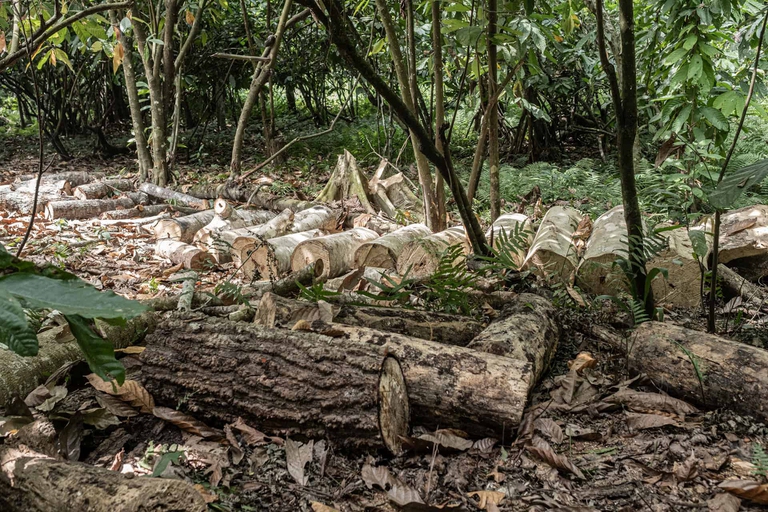
The objective is to guarantee the transparency in supply chains, but according to the Ivorian cooperatives it was done only on the production phase and not on the market, which has several dark sides.Farmers' cooperatives, hitherto squeezed to the bone, seriously fear that they will not be able to bear the costs of traceability certification despite, logically speaking, multinationals should pay more.
